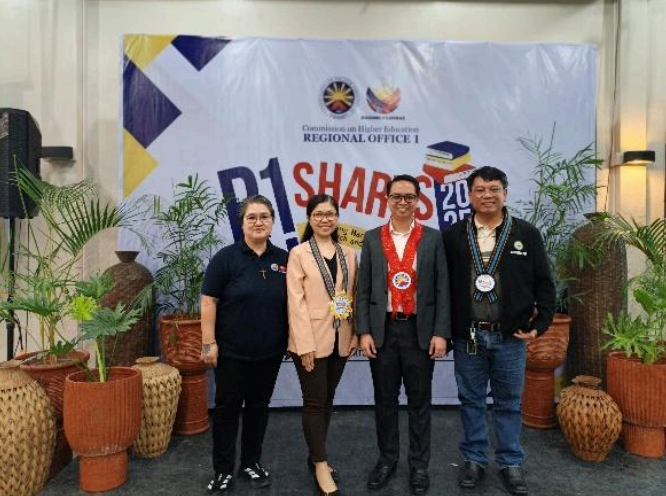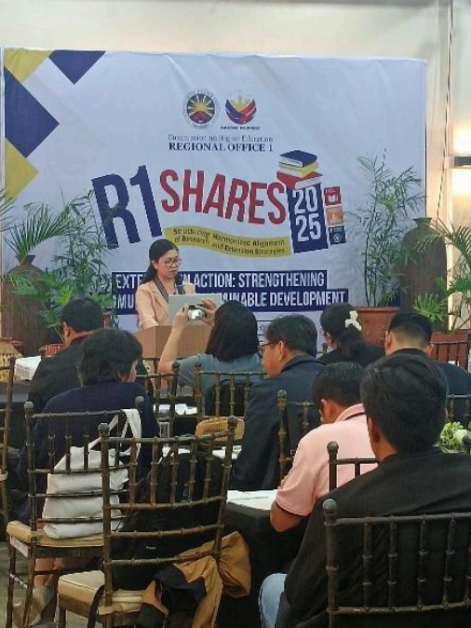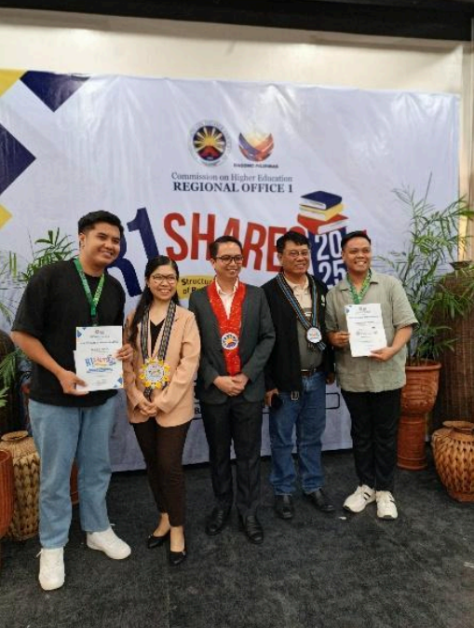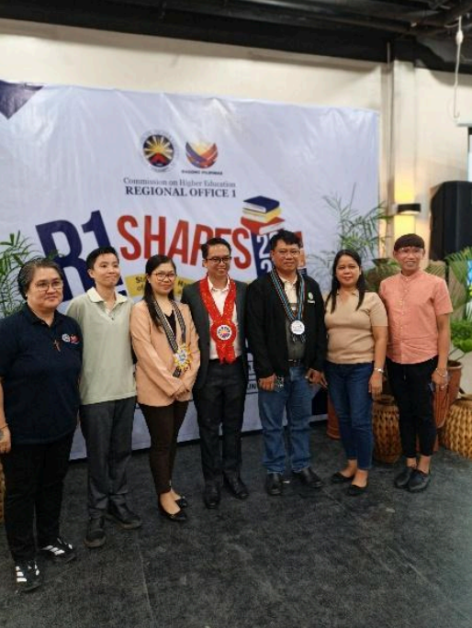On 5 November 2025, the Commission on Higher Education (CHED) Regional Office I convened the R1 Structuring Harmonized Alignment of Research and Extension Strategies (SHARES) 2025 Seminar held at Patio by Balai Norte, San Juan, La Union. With the theme “Extension in Action: Strengthening Communities for Sustainable Development,” the seminar gathered research directors, coordinators, and extension leaders from higher education institutions across Region I. Jeramie N. Molino, PhD, Sustainable Research Extension Officer of Saint Louis University’s Research, Innovation, and Sustainable Extension (RISE) Center, was invited as the Resource Speaker to deliver a lecture on “Sustainability Strategies of Higher Education Institutions for Extension Programs.”


Dr. Molino opened by framing extension work as a vocation of presence, solidarity, and transformation, rooted in the CICM mission and institutionalized through SLU’s RISE Center. She emphasized that sustainability is not a checklist, but a culture —a way of designing for legacy and embedding care and continuity into every partnership, project, and pedagogical choice.
The lecture highlighted four guiding frameworks that anchor sustainability: CICM Advocacy, which emphasizes service and justice; Catholic Educational Association of the Philippines – Justice and Peace, Engaged Citizenship, Ecological Integrity, Poverty reduction, Gender equality, and Youth empowerment (CEAP JEEPGY) pillars, which integrate justice, ecology, peace, gender, and youth into educational practice; Laudato Si’ themes, which frame sustainability as ecological and moral responsibility; and the United Nations Sustainable Development Goals (SDGs), which align local extension efforts with global development priorities. These frameworks ensure that extension programs are spiritually grounded, educationally aligned, and globally relevant.
Dr. Molino then presented four core strategies for sustaining extension programs. First, Community Co-Ownership, where communities are treated as co-creators rather than beneficiaries, using participatory tools such as problem trees, seasonal calendars, and storytelling circles. Second, Integration with Research and Curriculum, embedding extension into theses, service-learning, and faculty research, ensuring continuity and relevance. Third, Resource Optimization, reframing scarcity into abundance by leveraging existing assets, including students, faculty, parish offices, alumni, and digital platforms. Fourth, Institutional Anchoring, weaving extension into strategic plans, budgets, and performance indicators, ensuring systemic support and cultural integration.



Three institutional models illustrated these strategies in practice. The Benguet Coffee Project integrates agritourism and cultural preservation through co-ownership and academic integration. The Cacao Product Innovation in Tublay blends laboratory research with indigenous knowledge to create a value-added enterprise. The Barangay Hazard Mapping and 5S Implementation uses technology and pedagogy to build community resilience in partnership with LGUs. These models demonstrate how sustainability strategies translate into tangible, community-rooted outcomes.
The lecture emphasized that extension is not only an action but also a scholarship. Research validates impact, supports accreditation, inspires replication, and builds institutional memory. Suggested outputs include case studies, action research, policy briefs, journal articles, and conference presentations. By embedding research into extension, institutions transform outreach into scholarship and scholarship into service.
To deepen understanding, Dr. Molino employed metaphors: the Tree (roots, trunk, branches), the Weave (threads forming institutional culture), the Cyclical Framework (continuous process of needs assessment, co-design, implementation, reflection, research, institutionalization, reassessment), and the Rhizomatic Approach (adaptive, non-linear, horizontally spreading). These metaphors helped participants visualize sustainability as dynamic, interconnected, and culturally embedded.
The lecture concluded with a call to reflection and action. Sustainability was framed as legacy-building, rooted in values and relationships. Participants were invited to identify one strategy to bring back to their institutions and one program to sustain and scale. The extension was affirmed not merely as outreach, but as a promise, to students, to communities, and to the nation—that higher education would not only inform but also transform. (Article by Richel L. Lamadrid, DAES, Director, RISE Center | Photos by RISE Center)









